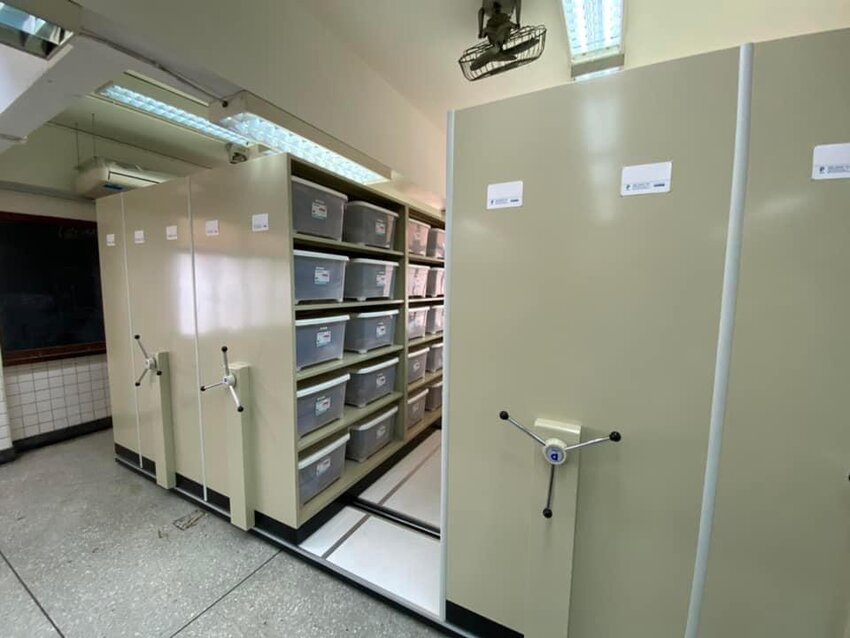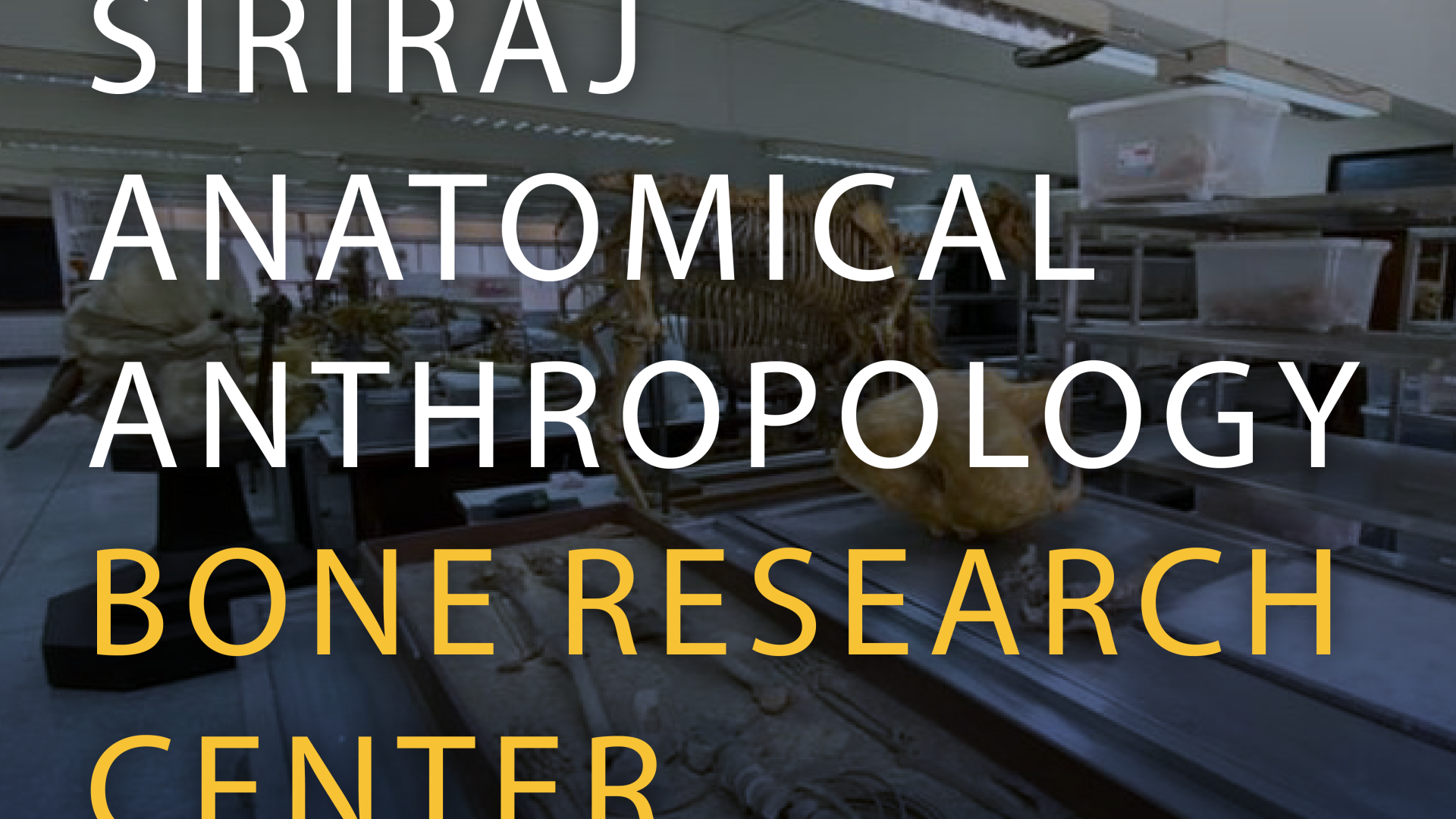Siriraj Anatomical Anthropology Bone Research Center (Virapan Davivongs) is dedicated to researching sources to find answers from skeletons. When an ‘unidentified deceased’ is found, often only a skeleton remains, leaving no other evidence for autopsy. Determining the identity of these individuals relies heavily on Forensic Anthropology, a specialized field focused on studying and analysing human skeletons to ascertain gender, age range, height, and race, ultimately aiding in verifying the identity of the skeleton’s owner. This process is crucial for returning the remains to their families or loved ones and aiding in case resolutions to ensure justice for all parties involved.
Establishment of the Bone Research Center
Recognizing the significance of advancing knowledge in legal anthropology, the Department of Anatomy at the Faculty of Medicine, Siriraj Hospital, established the Siriraj Anatomical Anthropology Bone Research Center (Virapan Davivongs). This center serves as a hub for collecting human and animal skeletons for research purposes, medical student education, and international knowledge exchange. The center, slated to open by the end of 2023, underscores the commitment to interdisciplinary collaboration and the advancement of forensic anthropology.
Historical Context and Legacy
Asst. Prof. Napakorn Sangchay, M.D., Ph.D., Chairman of the Department of Anatomy, highlights the center’s extensive and diverse skeleton collections. Siriraj Hospital has a long-standing tradition of accepting body donations for medical education purposes, spanning over a century. The hospital has continued its studies in anatomical anthropology, with pioneers such as Prof. Sud Sangwichian M.D., laying the groundwork. Building on this legacy, Asst. Prof. M.R Virapan Davivongs, M.D., M.Sc., aims to enhance the field of forensic anthropology. With over 500 complete human skeletons, including detailed information on gender, age, and cause of death, the center boasts a comprehensive repository crucial for forensic investigations and research.

Comprehensive Bone Collection
The abundance of complete bone samples, ranging from fetuses to individuals over 90 years old, enhances the accuracy of forensic anthropology work. Notably, the center possesses over 100 sets of skeletons from young victims, including children and teenagers, which are invaluable for research purposes. Furthermore, plans to collaborate with other institutions aim to increase the collection to over 1,000 complete bone sets, positioning Thailand as a leading source of bone sets in Asia.
International Collaboration and Advancements
International collaboration, such as with the John A. Burns School of Medicine, University of Hawaii in the USA and University of Dundee in the United Kingdom, facilitates the exchange of information and student programs, fostering the global advancement of knowledge in forensic anthropology. The establishment of the bone research center marks a significant milestone in legal anthropology, potentially leading to expanded skeletal analysis in legal proceedings and innovative developments, such as using AI for bone evaluation and creating artificial organs.
Call for Body Donations
Despite these advancements, the Siriraj Anatomical Anthropology Bone Research Center emphasizes the ongoing need for complete human skeletons for research and medical student education. With only approximately 10 body donations per year in the form of skeletons, the center encourages individuals with the desire to contribute to valuable scientific knowledge to consider donating their bodies for skeletal study, ensuring an enduring legacy of education and research.

 Published
Published